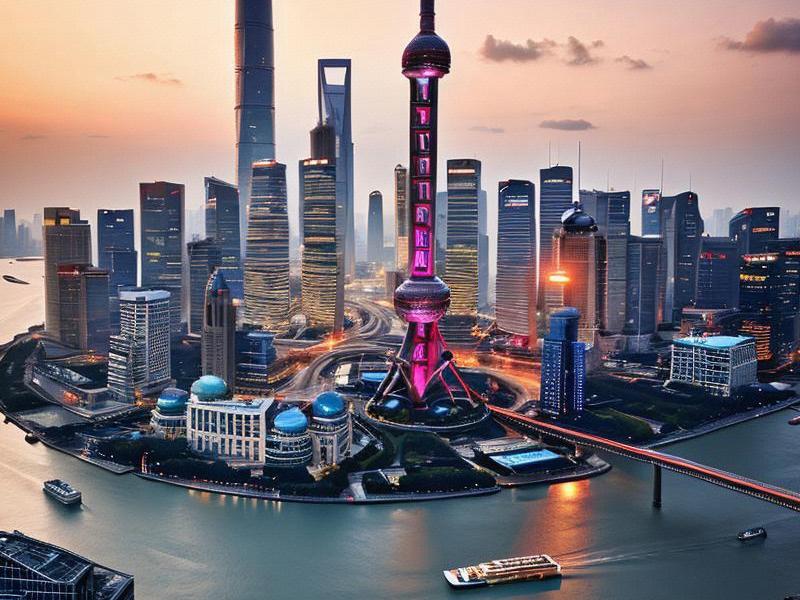Shanghai's Transformation: A Journey of Urban Renaissance and Innovation
⏱ 2025-04-23 08:20 🔖 上海龙凤419
📢0℃

Shanghai, the largest city in China and one of the world's most dynamic urban centers, stands as a testament to the country's rapid economic growth and urbanization. Over the past few decades, Shanghai has undergone a profound transformation, evolving from a historic port city into a global financial hub and a symbol of China's modernity. This journey of urban renaissance and innovation is not only reshaping the city itself but also influencing the broader narrative of China's development.
The economic prowess of Shanghai is perhaps its most striking feature. As the financial capital of China, the city is home to the Shanghai Stock Exchange, one of the largest stock exchanges in the world. Its skyline, dominated by iconic skyscrapers such as the Shanghai Tower, Jin Mao Tower, and the Oriental Pearl Tower, is a visual representation of the city's economic might. The Bund, once a symbol of colonial Shanghai, has been revitalized into a vibrant waterfront area, hosting luxury hotels, high-end shopping malls, and fine dining restaurants.
Shanghai's economic success is not solely attributed to its financial sector. The city has also emerged as a hub for technology and innovation. Zhangjiang Hi-Tech Park, often referred to as "China's Silicon Valley," is a major center for research and development in fields such as biotechnology, information technology, and new materials. Companies like Alibaba, Tencent, and Huawei have established their presence in Shanghai, contributing to the city's reputation as a global innovation leader.
Culturally, Shanghai is a city of contrasts, where the old and the new coexist harmoniously. The French Concession, with its charming cobblestone streets, colonial architecture, and quaint cafes, offers a glimpse into the city's colonial past. In contrast, areas like Pudong showcase the futuristic vision of Shanghai, with its modern skyscrapers, state-of-the-art transportation systems, and cutting-edge infrastructure.
上海贵人论坛
The preservation of Shanghai's cultural heritage is a priority for the city's authorities. The Yu Garden, a classical Chinese garden built in the Ming Dynasty, stands as a testament to the city's rich history. The Shanghai Museum, renowned for its extensive collection of Chinese art, attracts millions of visitors each year. These cultural landmarks, along with the city's vibrant art scene, music festivals, and theater productions, contribute to Shanghai's reputation as a cultural capital.
Shanghai's innovative spirit is not limited to its economic and cultural achievements. The city has also been at the forefront of environmental sustainability and smart city initiatives. The Maglev train, which connects Pudong International Airport to the city center, is a prime example of Shanghai's commitment to sustainable transportation. The city has invested heavily in green infrastructure, including urban forests, rooftop gardens, and energy-efficient buildings, to combat air pollution and mitigate the effects of climate change.
Smart city technologies are transforming the way residents and visitors experience Shanghai. The city has implemented intelligent transportation systems, digital payment solutions, and advanced public safety measures. The Shanghai Smart City Project aims to integrate technology into every aspect of urban life, enhancing the quality of life for its residents while ensuring sustainable development.
上海水磨外卖工作室
Education is another area where Shanghai has made significant strides. The city is home to some of the best universities in China, including Fudan University and Tongji University, which are renowned for their academic excellence and research capabilities. Shanghai's education system emphasizes innovation and creativity, producing a highly skilled workforce that drives the city's economic growth.
Tourism is a vital component of Shanghai's economy, attracting millions of visitors each year. The city offers a wide range of attractions, from historical landmarks like the Nanjing Road and the Yu Garden to modern attractions like the Shanghai Tower and the Shanghai Disneyland Resort. The city's culinary scene is another highlight, with its vibrant food culture offering everything from traditional Shanghainese cuisine to international flavors.
Despite its rapid development, Shanghai remains committed to addressing the challenges of urbanization. The city has implemented policies to manage population growth, improve housing affordability, and enhance public services. The Shanghai Free-Trade Zone, established in 2013, is a significant step towards promoting trade liberalization and economic reform.
上海娱乐联盟
Shanghai's transformation is not without its challenges. The city faces issues such as traffic congestion, air pollution, and the need for sustainable urban planning. However, the city's proactive approach to addressing these challenges, coupled with its innovative spirit, ensures that Shanghai continues to thrive as a global metropolis.
The journey of Shanghai is a microcosm of China's broader development story. It reflects the country's ability to balance rapid economic growth with cultural preservation and environmental sustainability. As Shanghai continues to evolve, it serves as a model for other cities around the world, demonstrating how urban centers can embrace innovation while honoring their heritage.
In conclusion, Shanghai's transformation is a remarkable story of urban renaissance and innovation. The city's economic prowess, cultural vibrancy, and commitment to sustainability make it a global leader in urban development. As Shanghai looks to the future, its journey serves as an inspiration for cities worldwide, showcasing the possibilities of a harmonious blend of tradition and modernity.
【潮涌长三角:上海的半径与圆周】从外滩灯光到江南水乡的共生密码Shanghai's Vibrant Cultural Scene: A Blend of Tradition and Modernity【霓虹与素笺】上海女性的百年气质图谱Shanghai 5250: Quantum Leisure Singularity and the Galactic Nightlife Matrix【城市观察】文化魔方的三原色:上海剧场、书店与美术馆的共生实验Shanghai's Nightlife Renaissance: Where Imperial Heritage Meets Quantum Innovation【霓虹密码】上海娱乐会所的时空折叠术Shanghai's Smart Nightlife Ecosystems: Blending Imperial Heritage with AI-Driven Innovation【量子上海】在11个维度中同时绽放的魔都镜像(1850-2025)Shanghai's Finest Women: A Story of Resilience and Excellence

